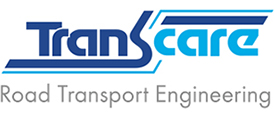Maintaining a commercial vehicle in optimal condition is essential for the safety of the drivers and cargo, but also to keep you compliant with regulations. Whether you’re preparing for a lorry test or a comprehensive commercial vehicle test, ensuring your vehicle meets all necessary standards is critical. Here’s a guide on how to prepare your commercial vehicle for testing at a vehicle testing facility.
Understand the requirements
The first step in preparing for a commercial vehicle test is to understand the specific requirements and standards that your vehicle must meet. Different jurisdictions may have varying regulations, so it’s important to familiarise yourself with the local requirements. This can typically be found on the government or vehicle testing facility’s website. Key areas often include emissions standards, safety equipment, and mechanical conditions.
Conduct a pre-test inspection
A thorough pre-test inspection is crucial for identifying and addressing any potential issues before the official test. This inspection should cover all major components of the vehicle:
- Brakes: Ensure that the braking system is fully operational. Check for worn brake pads, fluid levels, and the condition of the brake lines.
- Lights and Indicators: Verify that all lights and indicators are functioning correctly, including headlights, tail lights, brake lights, and turn signals.
- Tyres and Wheels: Inspect the tyres for adequate tread depth and ensure they are properly inflated. Check for any signs of damage or uneven wear.
- Steering and Suspension: Examine the steering system for any play or unusual noises and ensure the suspension components are in good condition.
- Exhaust and Emissions: Ensure the exhaust system is intact and check for any leaks. Verify that the vehicle meets emissions standards.
- Fluid Levels: Check all fluid levels, including oil, coolant, brake fluid, and windshield washer fluid.
Documentation and paperwork
Having all necessary documentation in order is essential for a smooth testing process. Ensure that you have:
- The vehicle registration certificate.
- Proof of insurance.
- Previous test certificates or records of recent repairs and maintenance.
- Any relevant permits or licences required for commercial operation.
Address any known issues
If you are aware of any existing issues with your commercial vehicle, address them before taking the vehicle to the testing facility. Small problems can often be resolved quickly and may prevent your vehicle from failing the test.
Perform a test drive
Before heading to the vehicle testing facility, perform a test drive to ensure that the vehicle is operating smoothly. Pay attention to any unusual noises, vibrations, or handling issues. This final check can help you identify any last-minute problems that need addressing. If you notice anything out of the ordinary, make sure to get it looked into.
Plan for the test day
On the day of the test, ensure that you arrive at the testing facility with plenty of time to spare. Bring all necessary documentation and be prepared to answer any questions the inspectors may have about your vehicle. It’s also a good idea to have contact information for your mechanic or service centre in case any unexpected issues arise that need immediate attention.
At Transcare, we offer lorry tests and commercial vehicle tests to help your fleet stay on track. Get in touch with our quality vehicle testing facility today to book your commercial vehicle test.








